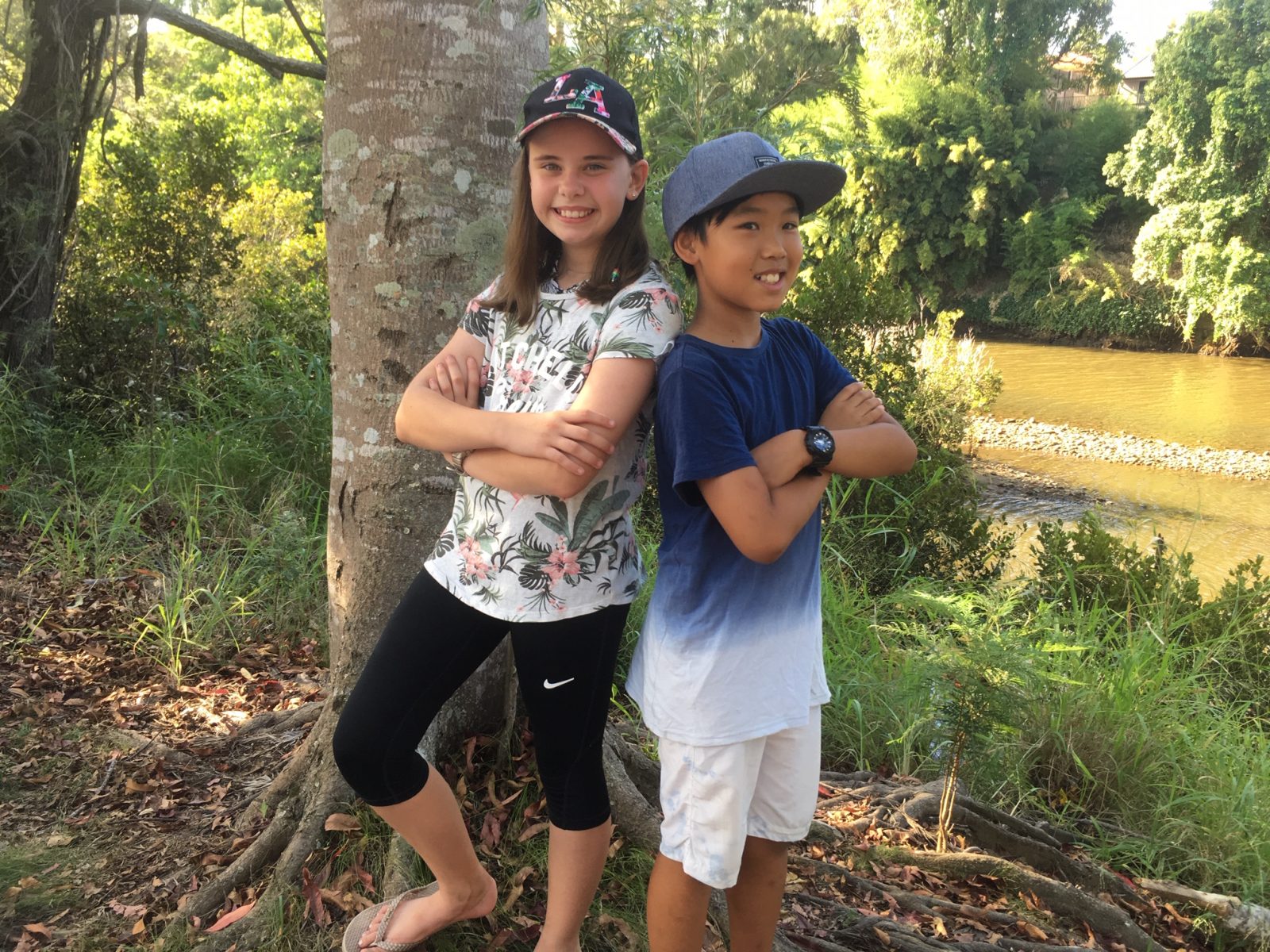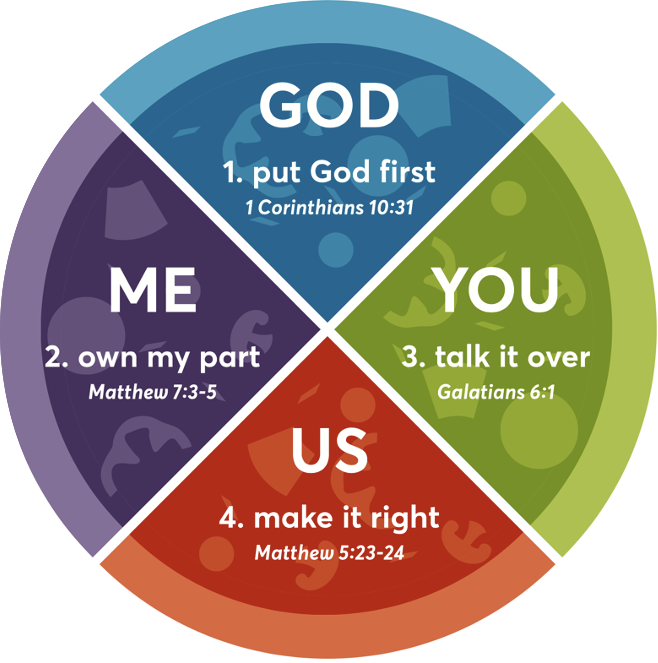teaching young people to be peacemakers and building a culture of peace in your school
who is PeaceWise?
PeaceWise is a Christian, cross-denominational not-for-profit peacemaking ministry established in 2007, operating across Australia. We strive to build peacemakers for life. We are motivated by Jesus’ call for Christians to display unity in their relationships as a gospel witness to the God we serve (see John 17).
We teach biblical peacemaking to children and adults and have seen extraordinary restoration and strengthening of relationships through the application of these principles. When a community like a school embarks on using these principles, the whole relational culture of the community is positively impacted – it can develop a culture of peace and be a powerful witness to Jesus to all who belong to the school community.
what are PeaceWiseKids and PeaceWiseYouth?
PeaceWise offers PeaceWiseKids for primary school students (Courses 1-4) and PeaceWiseYouth for high school students (Courses 5-7). These Christian programs equip young people to deal with challenging relationships and conflict in healthy, constructive and life-changing ways. All courses are created to be led by an adult using the materials we provide. Each course provides stimulus videos, teacher-led lesson plans and student engagement materials.
There are approximately 20,000 students currently enrolled in PeaceWiseKids or PeaceWiseYouth across Australia in around 60 schools. But Tasmania has been the missing piece – hence the reason we obtained some special funding to support its use in Tassie!
You can find extensive information about the courses themselves by reading the information at the bottom of this webpage, which also includes links to the webpages for the courses themselves.
what is the 2023 PeaceWise grant?
The 2023 PeaceWise grant provides a subsidy of up to 50% of the cost of PeaceWiseKids/PeaceWiseYouth licences for participating schools to a maximum total value of $5,000 over two years.
The program must begin being rolled out in 2024 and be used again in 2025. The two year timeframe is to support the embedding of the courses and peacemaking principles within each school.
grant details at a glance
grant documents
- online application form – see below
- includes your “best guess” two year implementation plan
- includes statement of support from your Principal
important dates
- grant applications open 16 August 2023
- Zoom online information session – 30 August 2023 3:30pm – 4:15pm
- grant applications close 20 September 2023
- applicants notified of outcome 23 October 2023
implementation support
- 4.5 hours of PeaceWise support included over two years
- includes 1 hour zoom Onboarding Session for staff
- includes one poster set for each different course successful grant applicants implement
roll out & reporting
- schools must commence rollout in 2024
- first grant report due by Jan 2025
- second grant report by Jan 2026
what are the key benefits of teaching biblical peacemaking?
- application of biblical principles of peacemaking to real world situations
- ability for students to identify their own response to conflict
- students are equipped to manage conflict in a healthy, God-honouring way
- development of a culture of peace across the school
- creation of a common language around conflict and peacemaking across the school
- helps students learn about God’s love and the difference Jesus makes in daily life
- students manage everyday conflict situations independently using the PeaceWise God-Me-You-Us framework
who is eligible for the grant?
The 2023 PeaceWise Grant is available for Christian schools in Tasmania who are happy to:
- use courses which overtly use Christian principles and teaching as the basis for learning how to respond well to conflict and build strong and healthy relationships
- accept the other grant conditions contained in the grant application
what are the key application requirements?
Successful applicants will be required to complete the following requirements:
- implement PeaceWiseKids or PeaceWiseYouth courses (or both) in 2024 and 2025
- nominate a key person to be responsible for the rollout
- have students complete short, anonymous the pre-and post-course surveys
- meet key reporting date deadlines
- produce a video or written record of how the School/students have been impacted by doing the courses
- complete the grant report at the conclusion of the grant period
what are the factors that improve our chances of being successful?
factor #1: apply 😉
- The biggest factor improving your chance of success is to apply!
- We are not kidding – there is only a relatively small pool of eligible schools in Tassie- so you have a really good chance of success compared to virtually any other grant application you are ever likely to make as a school.
factor #2: attend the Zoom online information session after school on 30 August
- here is the link to the session which will run from 3:30pm to 4:15pm
- this session will give you the “good oil” on what the PeaceWiseKids and PeaceWiseYouth courses are like, how you can use them to impact your students and your School community, as well as be a priceless opportunity to ask questions about the grant application
- the session takes place in the middle of the grant application period, so you will have time after the session to finalise your application in the light of what you learn.
- make sure you rsvp in advance by hitting this link – you will receive an email confirming your registration


other factors
Our decisions on successful applications are final and reasons for decisions will be kept confidential to PeaceWise. Having said this, the following factors will be some of the key things taken into account
- clarity of articulation of reasons for wanting to run the courses and outcomes being sought
- vision expressed of how the courses will be used within the School
- the degree of confidence PeaceWise feels in likely successful implementation, including the person/s responsible for rollout having suitable authority and funding in place
- the (admittedly subjective) impression we have of how great the impact of the grant is likely to be. (Note that this is not purely a “bigger schools” factor – because sometimes smaller schools may see larger impact.)
Is there an opportunity to support staff teaching and promoting peacemaking in the school to help build a culture of peace?
Simple answer: YES!
We know schools who first train their staff in biblical peacemaking typically have the strongest outcomes in equipping their students. This is because not only do staff have a better understanding of the principles they are teaching the students, they also have the opportunity to apply peacemaking personally as well. This spans their relationships with the students, parents and carers, fellow staff and even into their other relationships outside school.
This video from Melton Christian College shows what is possible when a “whole school” approach is taken, resulting in the development of a common language and approach to dealing with conflict and building a healthy relational culture. Melton Christian College has done staff training alongside the training of its students for many years.
The training for staff begins with Everyday Peacemaking for schools. The costs of a one-day Everyday Peacemaking for Schools staff training are not included in the scope of the grant and vary depending on the size of the training – the more people involved, the cheaper it becomes per person.
It is not a condition of a successful grant that a School requests this additional training, but in the case of otherwise equal applicants, PeaceWise will give preference to Schools who approach us to run this training for them. Training can be run for a school at any time in the year on professional development days.
We are hoping many schools will express interest in having staff trained. With enough interest, we can look at running events in the different regional centres of Tassie or at individual schools, based on the responses we receive. If you are interested in this aspect, including costs, please email us to ask for further details.
can you tell me more about the courses?
students will learn…
understanding conflict
MODULE 1
This is the WHAT part
Children learn what conflict is, where it came from, and a basic framework they can use in any conflict situation
responding to conflict
MODULE 2
This is the HOW part
Children learn the principles, skills and tools needed to be peacemakers
peacemakers for life
MODULE 3
This is the INSPIRATIONAL part
Children learn that as they apply these principles, they can bring peace both into their own relationships and into the communities to which they belong
Note: For the final course (Course 7) – Being a peacemaking in a complex world – there is a different course structure explained on the webpage for this course.
course structure
Each course is teacher-led, has comprehensive lesson plans and additional student engagement materials (typically a choice of workbook/journal or online activities).
- There are typically 15 lessons (topics) per course
- Each lesson includes 30-50 minutes of content – depending on how many activities you choose to do and the age of the students
- Each lesson begin with a 3-7 minute key teaching video, and is accompanied by a comprehensive lesson plan and student engagement options
- All courses are purchased as a 12 month subscription, which runs for the school year, i.e. from January to December each year.
If taught as one topic a week, the content could be expected to take two terms to teach. Schools have the option to teach across two, three or four terms.

ready to apply?









